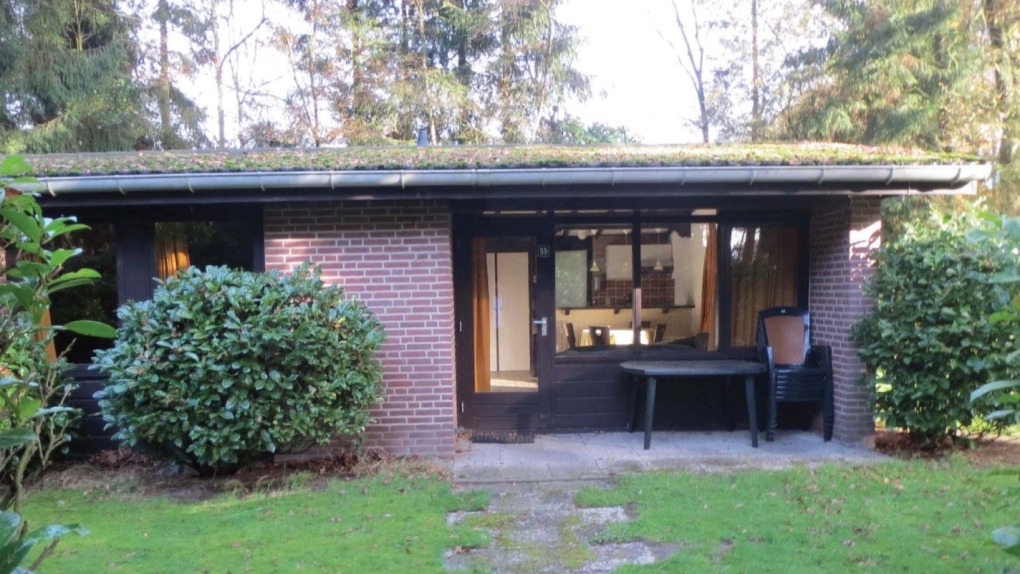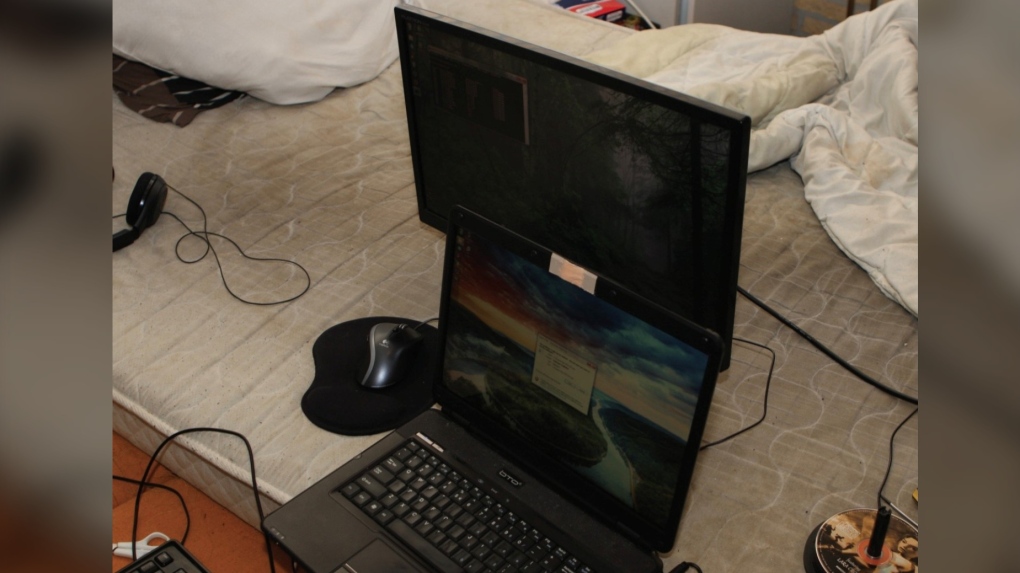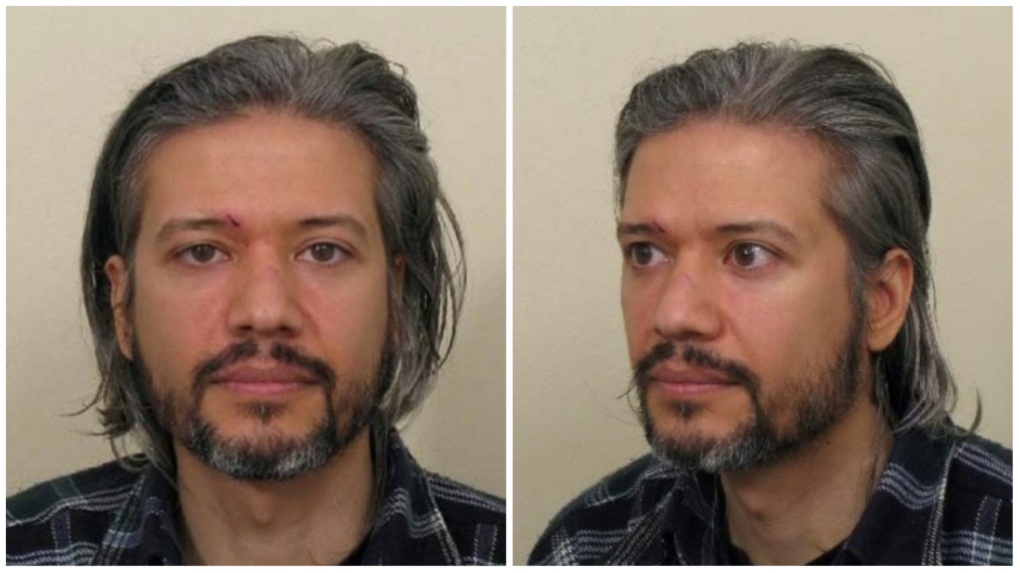Amanda Todd case: Teen's name turned up on hard drive seized during Dutch police search, investigator testifies
The jury trial of a man accused of sextorting Port Coquitlam, B.C., teen Amanda Todd heard testimony from a digital investigator that the girl's name turned up during analysis of a hard drive seized from the home where Aydin Coban was arrested.
Coban has pleaded not guilty to extortion, child luring, harassment and possession of child pornography.
The Crown alleges Todd was targeted from age 12 to 15 by a sextortionist with 22 phony accounts, who tried to use explicit images of the teenager as leverage to get her to perform sex acts online. Todd died by suicide in 2012 at the age of 15.
Det. Frank Van der Molen told the court he was part of a team of digital investigators that analyzed devices seized from a bungalow in the southern part of the Netherlands, where Coban was arrested in January 2014.
Van der Molen testified he completed a final report, which outlined findings from eight hard drives, including a Hitachi-brand hard drive.
“That hard drive was broken,” he told the court. “We weren’t able to make a forensic copy of it. So we sent that to the Netherlands Forensics Institute.”
Van der Molen testified the institute was able to repair the hard drive and produce a copy. He told the court among the contents of the hard drive, there was a playlist that included a video file with “Amanda Todd” in its name. The court heard the words appeared more than once connected to file names listed on the drive.
Amanda Todd’s mother Carol spoke outside court about seeing her daughter’s name in the court exhibit which was displayed on a screen for the public gallery.
“Now I feel that we’re rounding the bend where we’re going to connect more dots,” she said. “And that’s a good thing.”
In cross examination, Van der Molen testified there were no actual videos of Todd found on any of the devices he analyzed.
The trial also heard testimony about Coban’s arrest from another Dutch police investigator. Chief Inspector Joerie van Schijndel told the court during cross-examination that, on the night undercover officers entered the bungalow, Coban came out of the washroom.
 The Netherlands bungalow where Aydin Coban was arrested and searched by police.
The Netherlands bungalow where Aydin Coban was arrested and searched by police.
“He had a pipe, iron pipe or something like that in his hand,” van Schijndel said. “My guess is that he saw us in the mirror, went in the washroom, grabbed the pipe, went out, and then the arrest took place.”
The jury also heard testimony about a covert police operation that took place at the bungalow in the month prior to the arrest.
 Desktop computer and laptop found while searching the Netherlands bungalow where Aydin Coban was arrested.
Desktop computer and laptop found while searching the Netherlands bungalow where Aydin Coban was arrested.
Insp. van Schijndel testified data from some electronic devices was copied or “imaged” at that time, and two hard drives too large to image at the location were temporarily removed and brought to a forensic lab before being replaced. He also testified about “key logger” or monitoring software installed on a laptop and desktop at the bungalow.
The defence has not yet presented its case. Coban’s lawyer has said the case is about whether Crown can prove who was behind messages sent to Todd.
Todd’s mother said while a lot of the testimony at the trial has been technical, it’s important for people to understand.
“I’m thinking that Amanda’s story, Amanda’s case is precedent-setting,” she said. “It’s going to change the landscape that we see.”
This is the third week of the seven-week trial. Testimony is set to continue on Wednesday.
 Photo evidence of Aydin Coban as presented at his trial for extortion and harassment of B.C. teenager Amanda Todd.
Photo evidence of Aydin Coban as presented at his trial for extortion and harassment of B.C. teenager Amanda Todd.
CTVNews.ca Top Stories

Budget 2024 'likely to be the worst' in decades, former BoC governor says
Without having seen it, former Bank of Canada governor David Dodge believes that Tuesday's 2024 federal budget from Deputy Prime Minister and Finance Minister Chrystia Freeland is 'likely to be the worst budget' in decades.
What's at stake for Canada after Iran's unprecedented attack on Israel
Following the Iranian missile and drone strikes against Israel over the weekend, Canada should take the threat of Iran and potential escalation of the conflict seriously, one global affairs analyst says.
Former B.C. school trustee's 'strip-tease artist' remark was defamatory, judge rules
A controversial former school trustee from B.C.'s Fraser Valley who described a political rival as a "strip-tease artist" during an election campaign has been ordered to pay her $45,000 for defamation.
'A sense of urgency': Sask. man accused of abducting daughter calls himself to the stand during trial
Michael Gordon Jackson, the man on trial after being charged with contravention of a custody order for allegedly abducting his daughter in late 2021 to prevent her from getting a COVID-19 vaccine, called himself to the stand Monday.
Kingston, Ont.'s Aaliyah Edwards drafted into WNBA
After four years at the University of Connecticut, Edwards was selected sixth overall by the Washington Mystics in the WNBA draft Monday night.
NASA confirms mystery object that crashed through roof of Florida home came from space station
NASA confirmed Monday that a mystery object that crashed through the roof of a Florida home last month was a chunk of space junk from equipment discarded at the International Space Station.
A knife attack in Australia against a bishop and a priest is being treated as terrorism, police say
Horrified worshippers watched online and in person as a bishop was stabbed at the altar during a church service in Sydney on Sunday evening.
Body of 14-year-old boy pulled from Lake Ontario, police say he drowned while swimming
The body of a 14-year-old boy has been pulled from Lake Ontario after police say he drowned while swimming near Ashbridges Bay Park on Sunday night.
'Rust' armourer gets 18 months in prison for fatal shooting by Alec Baldwin on set
A movie weapons supervisor was sentenced to 18 months in prison in the fatal shooting of a cinematographer by Alec Baldwin on the set of 'Rust.'
































